The Weeneebayko Area Health Authority (WAHA), Queen’s University, and the Mastercard Foundation are partnering to transform healthcare in Northeastern Ontario and to expand education and employment opportunities for Indigenous youth by creating the Queen’s Weeneebayko Health Education Program.
WAHA and Queen’s Health Sciences will co-develop a university curriculum for health professions training in the western James Bay region. The program will prepare Indigenous students for careers in medicine, nursing, midwifery, and other health professions through culturally-informed education. Programming and resources will also be created to enable local youth to envision, pursue, and succeed in health professions training right from high school.
"This is a very important initiative for the Weeneebayko Region that will help increase the capacity for culturally-safe healthcare that is directed and delivered by health professionals from our communities," says Lynne Innes, President and Chief Executive Officer, Weeneebayko Area Health Authority. "It is exciting to work together on this new approach that will support Indigenous youth as they pursue healthcare careers and build a stronger, healthier future for the communities we serve."
The initiative aims to address healthcare challenges facing remote, Indigenous communities, including low accessibility to providers and facilities, the need for cultural safety, health outcome gaps, and underrepresentation of Indigenous peoples amongst health professionals.
“This project builds on a long-standing relationship between Queen’s, the Weeneebayko Area Health Authority, and the communities of the James Bay region,” says the Honourable Murray Sinclair, Queen's Chancellor. “It offers hope for Reconciliation through new approaches to educating and supporting Indigenous youth in pursuing careers in healthcare. I believe this can help deliver the transformation needed in Indigenous healthcare in Canada.”
The vision is to establish a new training site in Moosonee that will serve coastal community sites. The training programs will help build comprehensive, sustainable, community-centred healthcare—improving patient outcomes and addressing gaps in delivery. Training within Indigenous communities will bolster workforce retention and graduate professionals capable of providing culturally appropriate care.
The Mastercard Foundation is involved in this partnership through its EleV Program, which aims to support 100,000 Indigenous young people on their pathways through education and onto meaningful livelihoods by 2030. The Mastercard Foundation committed more than $31 million to support this partnership.
“The Foundation is making a commitment to support sustainable, systemic change in healthcare education and delivery as led by First Nations youth, communities and leadership in the region,” says Jennifer Brennan, Director of Canada Programs at the Mastercard Foundation.
“WAHA’s deep partnership with Queen’s University, and their shared experience and expertise, holds potential for real transformation in the region and beyond. Our aim is to get behind innovative approaches that create meaningful opportunities for First Nations youth based on their cultures, values, and aspirations.”
The health professions training program builds upon a nearly six-decade relationship between Queen’s and Weeneebayko Area health facilities anchored in training, frontline care, and research. Enrollment could start as early as September 2025 with an ultimate class size of 60 students across the health professions.
The curricula will be co-created by WAHA and Queen’s, with guidance from community members. Key aspects include:
• Decolonized approach: Indigenous ways of knowing integrated throughout.
• Interprofessional: an interprofessional curriculum designed to break down professional silos and prepare graduates to deliver patient care using team-based approaches.
• Mentorship: a mentorship into practice program will promote graduate retention within local communities.
• Culturally safe care: training will be situated within Indigenous communities and will graduate professionals prepared to deliver the care their communities need.
• Retention: a student recruitment, placement, and mentorship strategy to retain program graduates in Indigenous communities over the long term.
The partnership will also establish a Health Career Pathways Program to provide career counselling, resources, mentorship, and application support, as well as build access to prerequisite courses to support applications in health sciences. As part of the program’s soft launch, high school students from WAHA communities took part in a week-long, immersive health sciences camp at Queen’s in August 2022.
"This program will support Indigenous health transformation – improving regional health outcomes, addressing gaps in care delivery, and building the Indigenous health workforce,” says Jane Philpott, Dean, Queen’s Health Sciences. “We look forward to building this dynamic educational model alongside the Weeneebayko Area Health Authority and local Indigenous leaders, and we thank the Mastercard Foundation for supporting this crucial work.”


